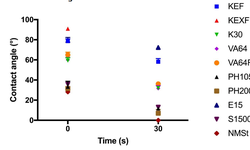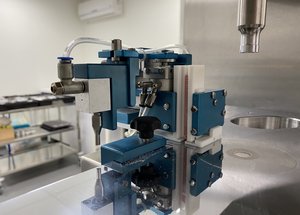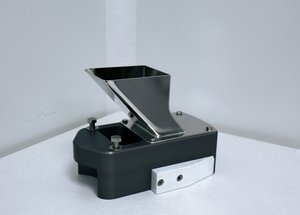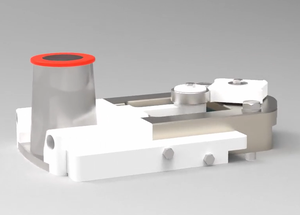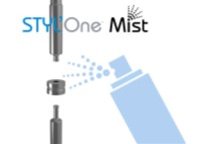Scientific papers
The adherence of active pharmaceutical ingredient (API) to compaction tooling surfaces, commonly known as punch sticking, can lead to costly downtime or product failures during commercial tablet manufacturing. Magnesium stearate (MgSt) is a widely used tablet lubricant recognized for its ability to mitigate punch sticking issues, although exceptions exist. While the logical assumption is that MgSt reduces punch sticking propensity (PSP) by covering the API surface, this mechanism has not been experimentally proven. This study aimed to clarify the connection between PSP and the surface area coverage (SAC) of tablets by MgSt, considering key formulation properties and process parameters, including MgSt concentration, API loading, API particle size, and mixing conditions. Two model APIs with known high PSPs, tafamidis (TAF), and ertugliflozin-pyroglutamic acid (ERT), were used in the investigation. The results revealed that PSP decreases exponentially with increasing SAC by MgSt. Additionally, the composition of the material adhered to the punch face was explored to gain insights into the onset of punch sticking and the potential impact of MgSt-induced punch conditioning events.
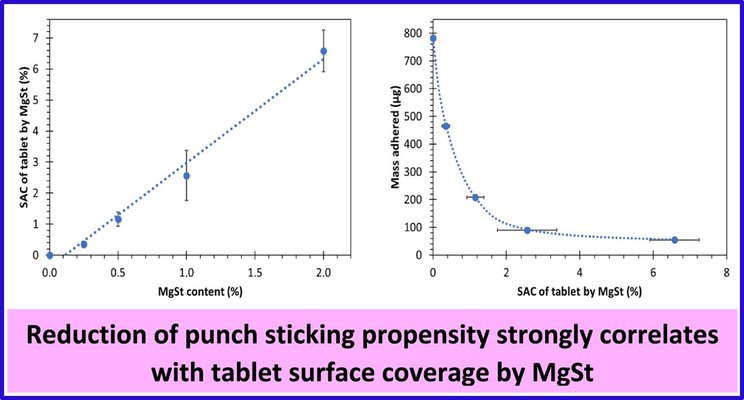
Comments
No comments posted yet.
Add a comment

